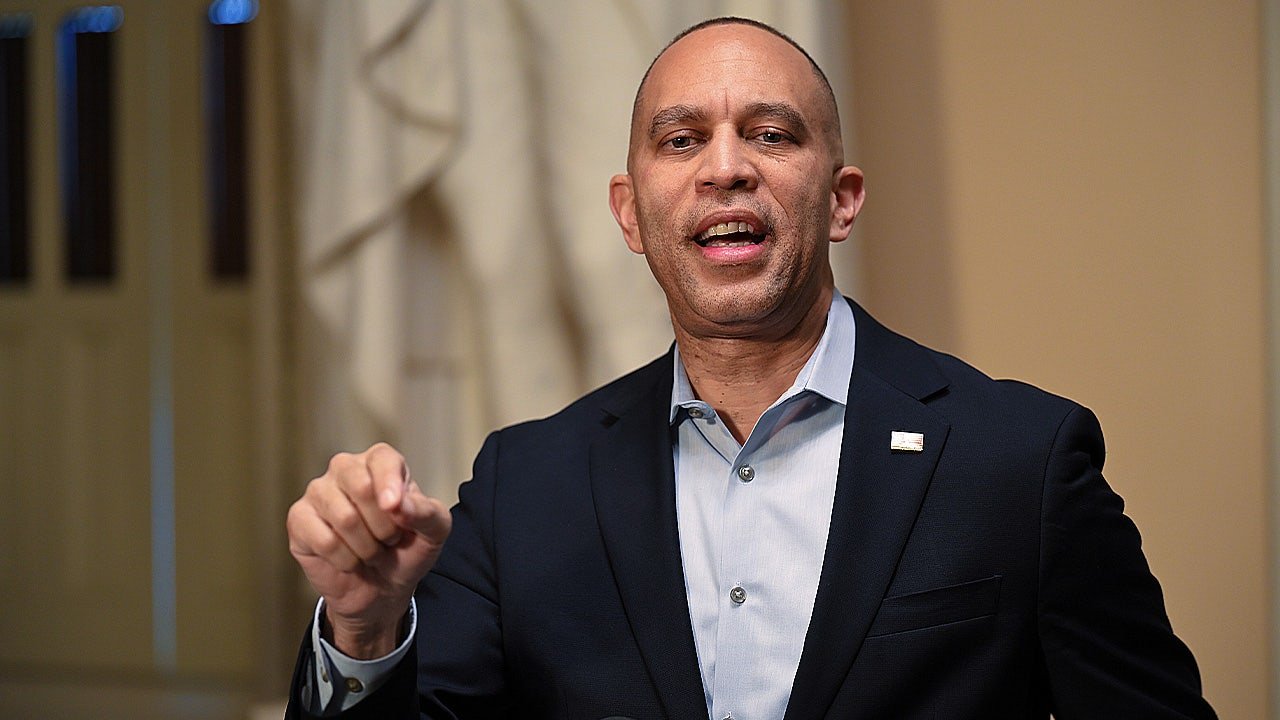INTERNACIONAL
India’s parliament passes bill that would change Muslim land endowments

- India’s parliament passed a controversial bill that amends laws governing Muslim land endowments, known as waqfs, by including non-Muslims on the boards that manage these properties and increasing government oversight.
- The government claims the changes aim to combat corruption and promote diversity, but critics argue it undermines Muslim rights and could lead to the confiscation of historic religious sites.
- Muslim groups and opposition parties have expressed concerns that the bill is politically motivated, and could marginalize Muslims by altering ownership rules and requiring waqf boards to validate property claims.
India’s parliament passed a controversial bill moved by Prime Minister Narendra Modi’s Hindu nationalist government to amend laws governing Muslim land endowments, while Muslim groups and opposition parties protested the move.
The bill would add non-Muslims to boards that manage waqf land endowments and give the government a larger role in validating their land holdings. The government says the changes will help to fight corruption and mismanagement while promoting diversity, but critics fear that it will further undermine the rights of the country’s Muslim minority and could be used to confiscate historic mosques and other property.
The debate was heated in both houses of parliament. The Lower House debated it Wednesday through early Thursday, while in the Upper House, the fiery discussion lasted more than 16 hours into early Friday.
The Congress-led opposition firmly opposed the proposal, calling it unconstitutional and discriminatory against Muslims. Modi’s ruling Bharatiya Janata Party lacks a majority in the Lower House, but its allies helped to pass the bill.
MUSLIMS IN INDIA VOICE CONCERNS THAT NEW CITIZENSHIP LAW COULD FURTHER MARGINALIZE THEM
In the Lower House, 288 members voted for the bill while 232 were against it. Similarly, 128 favored it and 95 voted against it in the Upper House. The bill will now be sent to President Droupadi Murmu for her assent to become law.
Raza Academy members shout slogans in Mumbai, India, to condemn the Waqf amendment bill that was passed early Thursday by the Lower House of India’s parliament, Thursday, April 3, 2025. (AP Photo/Rajanish Kakade)
Minority Affairs Minister Kiren Rijiju introduced the bill to change a 1995 law that set rules for the foundations and set up state-level boards to administer them.
Many Muslim groups, as well as the opposition parties, say the proposal is discriminatory, politically motivated and an attempt by Modi’s ruling party to weaken minority rights.
The bill was first introduced in parliament last year, and opposition leaders have said some of their subsequent proposals for it were ignored. The government has said opposition parties are using rumors to discredit them and block transparency in managing the endowments.
What’s a waqf?
Waqfs are a traditional type of Islamic charitable foundation in which a donor permanently sets aside property — often but not always real estate — for religious or charitable purposes. Waqf properties cannot be sold or transferred.
Waqfs in India control 872,000 properties that cover 405,000 hectares (1 million acres) of land, worth an estimated $14.22 billion. Some of these endowments date back centuries, and many are used for mosques, seminaries, graveyards and orphanages.
Law would change who runs waqfs
In India, waqf property is managed by semi-official boards, one for each state and federally run union territory. The law would require non-Muslims to be appointed to the boards.
Currently, waqf boards are staffed by Muslims, like similar bodies that help administer other religious charities.
During the parliamentary debate, Home Minister Amit Shah said non-Muslims would be included in waqf boards only for administration purposes and to help run the endowments smoothly. He added that they were not there to interfere in religious affairs.
«The (non-Muslim) members will monitor whether the administration is running as per law or not, and whether the donations are being used for what they were intended or not,» he said.
Muslim groups, like The All India Muslim Personal Law Board, said such comments were against the fundamentals of Islamic endowments as such bodies necessarily need to be governed by Muslims only. The board said the bill was «a blatant infringement on the constitutional rights of Muslim citizens» and called on citizens to hit the streets against it.
Mallikarjun Kharge, the Congress president, said, «Why should waqf bodies allow non-Muslims as members when Hindu temple trusts don’t allow people of other religions in their fold?»
One of the most controversial changes is to ownership rules, which could impact historical mosques, shrines, and graveyards, since many such properties lack formal documentation as they were donated without legal records decades, and even centuries, ago.
Questions about title
Other changes could impact mosques on land held in centuries-old waqfs.
Radical Hindu groups have laid claim to several mosques around India, arguing they are built on the ruins of important Hindu temples. Many such cases are pending in courts.
The law would require waqf boards to seek approval from a district level officer to confirm the waqfs’ claims to property.
Critics say that would undermine the board and could lead to Muslims being stripped of their land. It’s not clear how often the boards would be asked to confirm such claims to land.
«The Waqf (Amendment) Bill is a weapon aimed at marginalizing Muslims and usurping their personal laws and property rights,» Rahul Gandhi, the main opposition leader, wrote on social media platform X. He said the bill was an «attack on the Constitution» by the BJP and its allies «aimed at Muslims today but sets a precedent to target other communities in the future.»
INDIA’S RELIGIOUS DIVIDE CONTINUES TO WIDEN BETWEEN MUSLIM, HINDU COMMUNITY
Fears among Muslims
While many Muslims agree that waqfs suffer from corruption, encroachments and poor management, they also fear that the new law could give India’s Hindu nationalist government far greater control over Muslim property, particularly at a time when attacks against minority communities have become more aggressive under Modi, with Muslims often targeted for everything from their food and clothing styles to inter-religious marriages.
Last month, the U.S. Commission on International Religious Freedom said in its annual report that religious freedom conditions in India continued to deteriorate while Modi and his party «propagated hateful rhetoric and disinformation against Muslims and other religious minorities» during last year’s election campaign.
Modi’s government says India is run on democratic principles of equality and no discrimination exists in the country.
Muslims, who are 14% of India’s 1.4 billion population, are the largest minority group in the Hindu-majority nation, but they are also the poorest, a 2013 government survey found.
CLICK HERE TO GET THE FOX NEWS APP
INTERNACIONAL
Vuelos cancelados y aerolíneas que desvían sus rutas: Cuba se queda sin combustible para los aviones

Cuba se queda este lunes sin combustible para aviones, una evidencia más de los graves efectos que está teniendo el estrangulamiento petrolero de Estados Unidos sobre una isla que se encontraba ya en una grave crisis económica y energética.
Como adelantó EFE, las autoridades cubanas informaron a las aerolíneas este domingo a través del servicio de comunicaciones Notam (Aviso a aviadores) y las compañías con vuelos diarios a la isla -principalmente estadounidenses, españolas, mexicanas y panameñas- empezaron a tomar medidas de emergencia.
Las aerolíneas españolas Air Europa e Iberia, con rutas diarias a La Habana (Cuba), informaron que a partir de ahora en sus vuelos desde la isla a Madrid incluirán una parada técnica de repostaje en República Dominicana.
Air Canada, la principal línea aérea de Canadá, anunció este lunes que de forma inmediata suspenderá sus servicios a Cuba por la falta de combustible.
Otras compañías canadienses, el primer mercado de origen del turismo a la isla, comenzaron a reajustar sus frecuencias y rutas, así como a ofrecer cancelación de reservas o cambios sin penalización a sus clientes.
El aviso de las autoridades cubanas en Notam afectaba a los nueve aeropuertos internacionales de Cuba y tenía, en principio, validez por un mes, del 10 de febrero al 11 de marzo.
El sector turístico completo, esencial para la economía cubana, está viéndose afectado por el asedio petrolero de Estados Unidos, que primero acabó con los envíos de Venezuela (3 de enero) y luego amenazó con aranceles a los países suministrasen crudo a la isla (29 de enero).
Entre las medidas de emergencia incluidas en el duro paquete anunciado por el Gobierno cubano para tratar de subsistir sin importaciones de petróleo (pese a que la isla sólo produce un tercio de sus necesidades energéticas) está la «compactación de infraestructuras hoteleras».
En efecto, según confirmaron a EFE este sábado fuentes del sector, varios hoteles del país -principalmente en Varadero y los cayos del norte- han cerrado sus puertas de urgencia y transferido sus turistas a otras instalaciones como medida de ahorro.
La hotelera española Meliá explicó a EFE que cerraron tres instalaciones en la isla de forma provisional, una decisión operativa «basada estrictamente en los niveles de ocupación» para optimizar recursos y con la prioridad de garantizar el mejor servicio y experiencia a los clientes.
El turismo en Cuba se encontraba ya en horas bajas por la conjunción de la pandemia, las sanciones estadounidenses y la crisis del país. El año pasado cerró con apenas 1,8 millones de visitantes internacionales, frente a los 4,7 de 2018.
El turismo había sido en Cuba una de las tres mayores fuentes de divisas, con las remesas y las misiones médicas (otros dos ámbitos en horas bajas).
La escalada de la presión estadounidense cae sobre la isla en su peor crisis económica en décadas, con escasez de bienes básicos (alimentos, combustible, medicinas), elevada inflación, dolarización parcial, prolongados apagones diarios, derrumbe de la producción, abultado déficit fiscal y una migración masiva.
El oficial Centro de Estudios de la Economía Cubana (CEEC) estima en su informe del segundo semestre del año pasado que el producto interno bruto (PIB) de la isla se contrajo un 5 % en 2025, con lo que la economía nacional habría caído más de un 15 % desde 2020.
El documento habla de una «coyuntura crítica» con «solapamiento de crisis» y de «un modelo económico agotado y sin resortes efectivos» para «transformar una realidad necesitada de cambios estructurales y una renovada capacidad de adaptación».
Sobre 2026, el CEEC advierte de un «escenario dominado por la incertidumbre» y percibe como optimista la previsión del Gobierno cubano de crecer un 1 %. Y eso, antes de la orden presidencial que amenaza con aranceles a quien suministre petróleo a la isla.
México, uno de los principales suministradores de Crudo a Cuba en 2025, optó por suspender los envíos de petróleo y mandar a la isla 814 toneladas de ayuda humanitaria. Los dos barcos militares mexicanos con alimentos y productos de higiene tienen previsto atracar en Cuba a mediados de este semana.
Con información de la agencia EFE
INTERNACIONAL
Entre dudas e internas en el chavismo, crece la expectativa por la libración masiva de presos políticos en Venezuela

La Asamblea Nacional de Venezuela, el Parlamento controlado en su inmensa mayoría por el chavismo, postergó hasta el jueves el tratamiento final de la ley de amnistía impulsada por la presidenta encargada, Delcy Rodríguez, bajo enorme presión de Donald Trump.
La reunión prevista para el martes fue aplazada sin explicaciones en medio de fuertes internas en el gobierno chavista y tras el nuevo arresto de un líder de la oposición.
El avance de la ley aumentó la expectativa por la liberación de los más de 600 presos políticos que se estima aún quedan en el país, entre ellos los argentinos Nahuel Gallo y Germán Giuliani.
Leé también: El show de Bad Bunny en el Super Bowl impactó en EE.UU. y reavivó el debate por las deportaciones de Trump
“En Venezuela no hace falta ninguna ley para liberar a Nahuel. Ellos saben que Nahuel es inocente desde el primer momento, pero obviamente siempre voy aplaudir todo aquello que permita la libertad, no solo de Nahuel sino de todos los inocentes que viven día a día la opresión en las cárceles en Venezuela”, dijo a TN la pareja del gendarme catamarqueño, María Alejandra Gómez.
Gallo lleva más de 14 meses detenido en Venezuela sin contacto con su familia y sin asesoría legal. Unas semanas después de su arresto, Nicolás Maduro lo acusó de planear el asesinato de Delcy Rodríguez.
Giuliani fue detenido en mayo de 2025 bajo cargos de narcotráfico.
La ley de amnistía jaqueada por el nuevo arresto de líder opositor
Pero la esperada aprobación de la norma quedó jaqueada por la nueva detención de Juan Pablo Guanipa, considerada la mano derecha de la líder opositora María Corina Machado, 24 horas después de su excarcelación registrada el domingo.
“Una persona fue detenida nuevamente por violar las condiciones sobre las cuales fue liberada”, dijo el ministro del Interior y Justicia, Diosdado Cabello, en una rueda de prensa. El ministro del Interior, Diosdado Cabello (Foto: REUTERS/Marco Bello)
El nuevo arresto de Guanipa impactó no solo en la oposición, sino también en la interna chavista. Cabello, representante del ala dura del gobierno, quedó en el medio de esa lucha de poder.
“No había pasado nada hasta la estupidez de unos políticos que creyeron que pueden hacer lo que les da la gana y embochinchar (alterar) el país, violando las propias condiciones sobre las cuales se les está dando libertad”, dijo.
Leé también: Estuvo preso en Venezuela con el argentino Germán Giuliani y contó cómo lo vio: “Mentalmente está consternado”
Guanipa divulgó videos y dio declaraciones tras su liberación que, a juicio de personeros del chavismo duro, no fomentaban la “reconciliación”. Desde el ala radical chavista se busca así “disciplinar” a los opositores liberados, algunos de ellos —como Perkins Rocha, asesor jurídico de Machado— que salieron en libertad el domingo con tobillera electrónica.
Poco después, se conoció que la Asamblea Nacional suspendió la sesión de este martes. La ley podría salir recién el jueves, en medio de una interna entre dos sectores enfrentados: por un lado el chavismo radical liderado por Cabello y por el otro Delcy Rodríguez y su hermano y titular del Parlamento, Jorge Rodríguez.
La asamblea sesiona normalmente los martes y jueves.
Los hermanos Rodríguez, impulsores de la iniciativa y considerados el sector pragmático del gobierno, están bajo una enorme presión de la Casa Blanca tras el ataque y captura de Maduro el 3 de enero.
Cuátos presos políticos quedan en Venezuela
El presidente de la Asamblea Nacional, Jorge Rodríguez, dijo el viernes pasado que entre este martes y el viernes se liberará a todos los presos políticos.
El Foro Penal, una ONG que monitorea estas excarcelaciones, dijo que desde el 8 de enero se liberó a 426 detenidos sobre un total de más de 800. Quedarían entonces más de 400 en distintas prisiones del país, aunque otras fuentes calculan que son más de 600. Familiares piden la liberación de los presos políticos (Foto: REUTERS/Fausto Torrealba)
Los hermanos Rodríguez quieren aprobar la ley lo más pronto posible, mientras crecen las dudas sobre si la norma alcanzará a todos los presos políticos y si servirá para cubrir con un manto de impunidad los crímenes y violaciones a los derechos humanos del gobierno chavista,
Las claves de la amnistía general impulsada en Venezuela
Varias ONG vienen alertando sobre los alcances de esta ley de amnistía, en especial porque se mantendrían vigentes leyes usadas como “herramientas de persecución” a opositores, como la llamada “Ley de odio” o la “Ley Bolívar”, que prevé penas de 30 años de cárcel a quienes respalden sanciones a Venezuela.
La ley en debate consta de 13 artículos y establece “una amnistía general y plena” a todas las personas que “hayan sido procesadas o condenadas por la presunta o comprobada comisión de delitos políticos o conexos” desde 1999 hasta enero de 2026.
Estarán excluidas las personas que hayan cometido violaciones graves de los derechos humanos, delitos de lesa humanidad, crímenes de guerra, homicidio intencional, tráfico de drogas “con pena mínima aplicable superior a nueve años de prisión” y “delitos contra el patrimonio público”.
Leé también: El presidente del Parlamento venezolano pidió perdón por las detenciones de presos políticos
Pero las dudas son consistentes. El director de la ONG Laboratorio de Paz, Rafael Uzcátegui, dijo que el artículo 8 impide demandas civiles contra el Estado, bloquea sanciones administrativas a funcionarios y anula responsabilidades políticas y patrimoniales.
“Es una forma de impunidad: no se absuelve, pero tampoco se hace justicia”, indicó.
Además, la ley refiere que la “confrontación política” fue impulsada “desde el extremismo”. La ONG sostiene que no reconoce que ese extremismo “también fue promovido desde el propio poder político”.
La Misión Internacional Independiente de Determinación de los Hechos para Venezuela se mostró cautelosa sobre el proyecto. Según advirtió, así como está redactada, la ley podría no aplicarse a personas que hayan sido acusadas o condenadas por delitos que, en apariencia, no son políticos, como aquellos contra el patrimonio público».
“Una amnistía de alcance limitado corre el riesgo de excluir a numerosas personas perseguidas por motivos políticos y no garantiza, por sí sola, la restitución plena de sus derechos”, advirtió María Eloísa Quintero, miembro de la misión.
Venezuela
INTERNACIONAL
Jeffries accuses Republicans of ‘voter suppression’ over bill requiring voter ID, proof of citizenship

NEWYou can now listen to Fox News articles!
The House of Representatives’ top Democrat claimed Republicans’ election security bill was tantamount to «voter suppression» on Monday.
House Majority Leader Hakeem Jeffries, D-N.Y., criticized the House GOP-led SAVE America Act during his weekly press conference ahead of an expected vote on the bill coming as early as Wednesday.
«Republicans have adopted voter suppression as an electoral strategy. That’s what the so-called SAVE Act is all about,» Jeffries said.
He said the bill getting a vote this week is «worse than» a previous iteration simply called the Safeguarding American Voter Eligibility (SAVE) Act, which passed the House in April 2025 with support from all Republicans and four Democrats.
SCHUMER NUKES GOP PUSH FOR ‘JIM CROW-ERA’ VOTER ID LAWS IN TRUMP-BACKED SHUTDOWN PACKAGE
U.S. House Minority Leader Hakeem Jeffries speaks during a press conference on Capitol Hill on Nov. 3, 2025 in Washington, D.C. (Roberto Schmidt/Getty Images)
The main thrust of the SAVE Act was implementing a new proof of citizenship requirement in the voter registration process in all 50 states.
The new bill, led by Rep. Chip Roy, R-Texas, and Sen. Mike Lee, R-Utah, would also create a federal voter ID standard at the polls, requiring people to show a form of identification when casting a ballot in national elections.
Jeffries also pointed to a provision that would require information-sharing between state election officials and federal authorities in verifying citizenship on current voter rolls, accusing Republicans of trying to give Americans’ data to Immigration and Customs Enforcement (ICE).
SCHUMER FACES BACKLASH AFTER CALLING SAVE ACT ‘JIM CROW’ DESPITE PREVIOUS ALLEGATION FALLING FLAT
«This version, as I understand it, will actually give [the Department of Homeland Security] the power to get voting records from states across the country. Why would these extremists think that’s a good idea?» Jeffries said.

Speaker of the House Mike Johnson, R-La., gestures as he meets with reporters ahead of a key procedural vote to end the partial government shutdown, at the Capitol in Washington, Tuesday, Feb. 3, 2026. (J. Scott Applewhite/AP Photo)
«Who’d want DHS and ICE, who have been brutally, viciously and violently targeting everyday Americans, to have more data about the American people? It’s outrageous. Something is really wrong with these folks. I think they’re trying to lose elections at this point.»
There is no validated evidence to date that non-citizen voting has swayed the results of any federal election.
But Republicans have argued that the influx of illegal immigrants under the Biden administration has made the problem a real possibility in coming elections.
Nevertheless, voter ID provisions have proven popular in multiple public surveys.
A Pew Research Center poll released in August 2025 showed a whopping 83% of people supported government-issued photo ID requirements for showing up to vote, compared to just 16% of people who disapproved of it.

Voters stand in line before casting ballots at a polling location in Dallas, Texas, on Nov. 8, 2022. (Nitashia Johnson/Bloomberg via Getty Images)
CLICK HERE TO DOWNLOAD THE FOX NEWS APP
Jeffries also said the bill would die in the Senate, where at least some Democrats are needed under current rules to overcome a filibuster and advance the legislation.
«It’s not going to pass. If it squeaks by the House, it’s dead on arrival in the Senate. They’re wasting time,» he said.
The real possibility of the bill failing in the Senate is why a group of House conservatives are pushing for Senate Majority Leader John Thune, R-S.D., to upend the chamber’s rules on the filibuster to get rid of the 60-vote threshold needed to overcome one. Thune has not committed to any route.
house of representatives politics,house of representatives,politics,democrats

 CHIMENTOS3 días ago
CHIMENTOS3 días agoNatalie Weber contó toda la verdad del coqueteo de Sabrina Rojas a Mauro Icardi en un boliche: “Yo sé lo que pasó esa noche y te puedo decir que Sabrina no fue”

 ECONOMIA2 días ago
ECONOMIA2 días agoEl sector industrial advierte que la apertura económica exige eliminar las distorsiones internas

 CHIMENTOS2 días ago
CHIMENTOS2 días agoMirtha Legrand se quebró desconsolada al hablar de la renuncia de Jimena Monteverde a su mesaza















